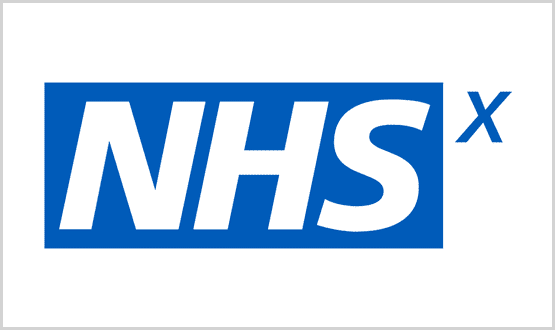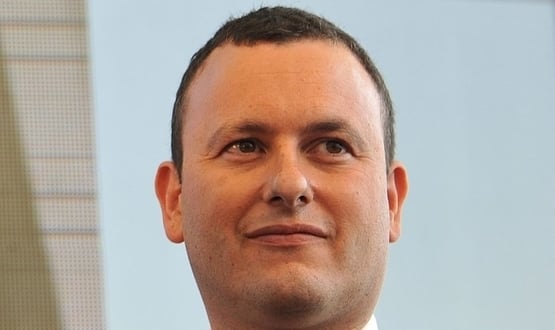NHSX CEO talks money, GDEs and touring the country
- 1 July 2019

The CEO of NHSX has said he does not want the new unit to become an “enormous cash cow” but rather be the place where everything can align together.
Matthew Gould spoke to Digital Health News, ahead of the launch of NHSX on 1 July, about the future of some digitalisation projects and his recent tour across the country.
Gould, who was confirmed as the NHSX CEO in April 2019, was also questioned in particular about whether NHSX, which has been set up to oversee technology across health and social care, will have responsibility over NHS IT budgets.
The former government director for cyber security said: “The underlying logic is that it [NHSX] pulls together all the different levers which includes the digital transformation programme, spend controls, mandates within the system, all the bits that previously sat in the Department of Health and Social Care, NHS England and NHS Improvement which includes, as I say, some money as part of the transformation part.
“That includes control over money that has previously sat in NHS Improvement, it includes, for example the mandate over NHS Digital so there is a range of authorities and levers and a measure of money but I would be loathed to give the impression that we are suddenly going to become an enormous cash cow because actually we are inheriting a lot of programmes mid-flight and we’ve had to do some quite sharp prioritisation.
“The idea is by being able to have in the same place and the same hands – the spend controls, the policy setting, the mandates, the digital transformation projects will be able to get them to align in support of very clearly stated missions which we are trying to achieve.
In a recent blog post, Gould also confirmed that the Global Digital Exemplar (GDE) programme, which focuses on creating sites of digital excellence would continue.
However, in his blog, Gould said the programme would have “more emphasis on the parts of the NHS that need most help”.
When asked to expand on this, Gould told Digital Health News: “It is essential that we have trail blazers who can show what can be achieved and who can set blueprints for the rest of the systems to follow and who can hand-hold other bits of the system in the form of the fast followers.
“I think that’s really good and I’ve been really impressed by what I have seen and I am in no hurry to close down the GDE programme as some people have suggested.
“But I don’t think that answers the whole issue, I think it leaves the question of what do you do about the others? I don’t know what the answer is but what I am clear is, the answer isn’t to leave them behind and only focus on the top end.”
He added that he is working on how to best to solve the question, looking into whether the answer is expanding the GDE programme or “something different”.
Before he started in the role, Gould had spent the last month travelling up and down the country to find out about what it is like on the NHS front-line.
During his tour, Gould visited the likes of the newly revamped Chase Farm Hospital and opened the offices of the Great North Care Record.
I’m starting my month finding out about life on the NHS frontline. A month of listening. before you ask, most of it will be outside London, and I’ll be visiting GP surgeries, mental health trusts, ambulance services, care homes. & night shifts. Next stop Watford General. pic.twitter.com/NHCbOPRbnH
— Matthew Gould (@matthewsgould) June 5, 2019
Gould said the tour was “helpful”, adding that he plans to continue.
He told Digital Health News: “I can’t stop going and it’s something I am going to encourage other NHSX staff to do, keep getting out and talking, seeing how what we’re doing has an impact on what the system does.
“Partly because I think it’s incredibly motivating, partly because it means we are much more likely to get it right if we keeping talking to people.”
When asked about what sets NHSX from the others, Gould said it was the fact that it “aligns” aspects of healthcare; Department of Health and Social Care, NHS England and NHS Improvement.
He added: “I’d say another thing as well which the clue is in the name, the secretary of state [for health and social care] set us up with an explicit focus on user experience and so we know that an absolute part of our mission is to make sure that users of the technology are an integral part of the development of it and not tacked on at the end.”
Finally, when asked about what he believes success will look like in the future, Gould said he wants to have “real world measures of success”, such as “saving time, services in the hands of patients, data more easily accessible, helping productivity”.
These measured successes are all part of NHSX’s five missions which are:
- Reduce burden on staff, so they can focus on patients
- To give citizens tools to access information and services directly
- To ensure clinical information can be safely and digitally accessed
- Improve patient safety across the NHS
- Increase NHS productivity





4 Comments
It would save Matthew all these trips (or some of them) if he sat down and read the comments on all related Digital Health articles. It would also open his eyes to the fact that NHS-knowledgeable people have been offering suggestions for years
If only someone worked for a company which aggregated legacy health data and made it available to staff!
Spot on John. The threat of sanctions for non compliance with open API’s has been made by NHS Futures, the customers want to see them invoked due to current barriers this imposes on development, so let’s see the “monopoly tree ” shaken
To solve the current interoperability issue, NHSX need to think about the flow of patient information – allowing it to ‘travel’ with the patient and not get held up in data silos.
The reality is that many hospitals are still running multiple applications, supplied by different vendors across various departments, often with little or no integration. It’s BridgeHead’s strong belief that the focus of interoperability should not be on ‘system interoperability’, but ‘data interoperability’.
Unfortunately, many vendors simply do not want to embrace open standards. On the one hand, it might be costly for them to change their systems; on the other, they may fear losing the control or ‘lock-in’ they have with customers.
If Matthew Gould and his team can ensure that everyone works towards the nirvana of a truly integrated and standards-based NHS, only then will we NHSX be able to achieve its 5 missions and create the efficiencies needed to provide patients with the sustainable, high quality care they deserve.
Comments are closed.